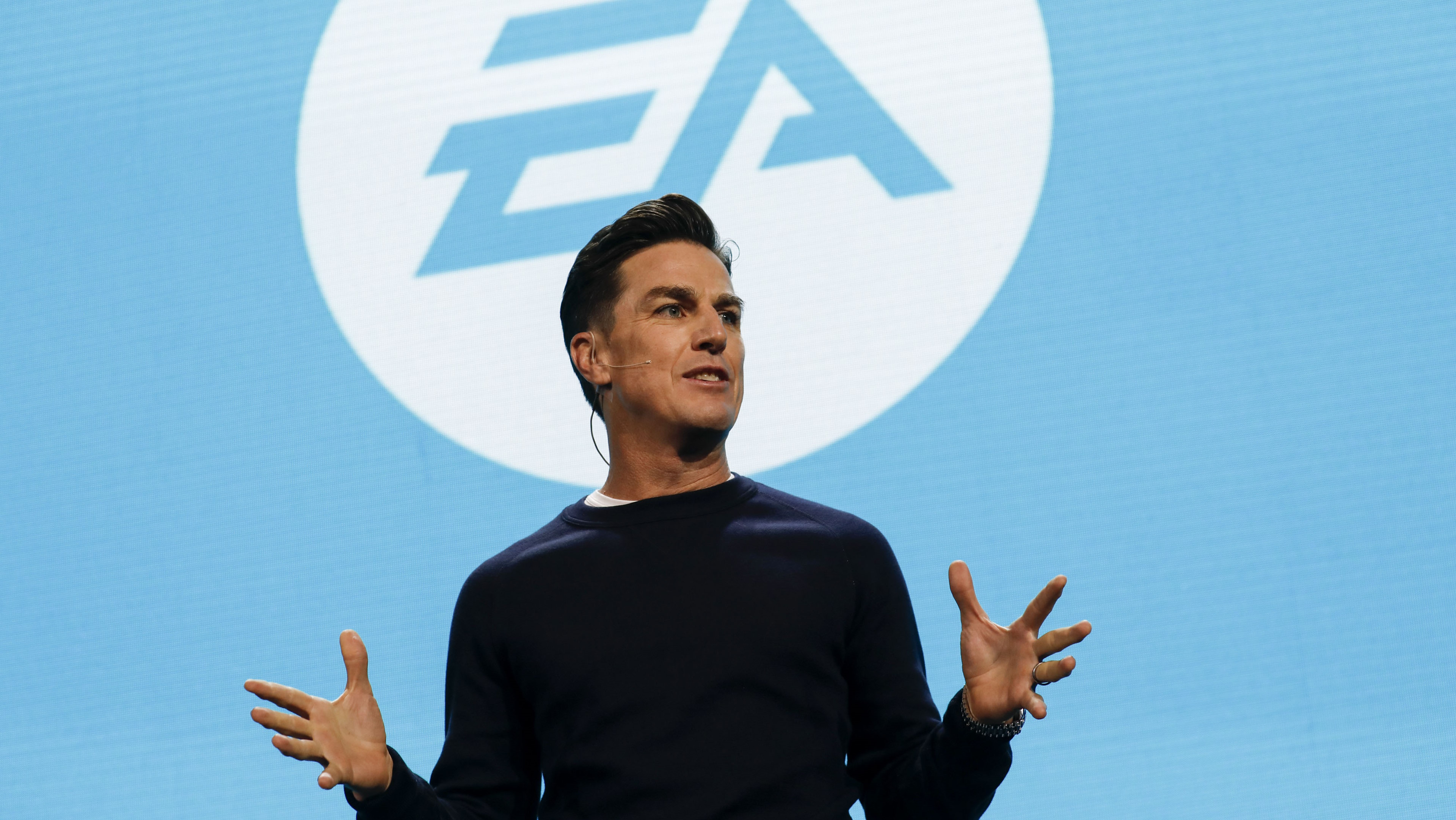
It's 2024 and everyone who's anyone is thinking about how to get AI to do the heavy lifting for them. Among that number? EA CEO Andrew Wilson, who recently had a natter with Morgan Stanley (via TechRaptor) about his vision for AI and how it could impact EA's development processes in the years to come. Are you nervous? I'm nervous.
Asked how EA was using AI, Wilson rhapsodised about the company's long and fruitful history with the tech, describing EA as "AI-native" and that games like Madden—specifically its player runs—had already been improved by the introduction of machine learning. Moving on, Wilson says EA is "embracing [generative AI] deeply," and that's it in no small part down to how big games have gotten.
"The development cycle is very iterative, and incredibly time consuming, which is why games are now taking six and seven years to build, as they've gotten bigger and deeper," said Wilson, "So the first thing for us is how do we make that more efficient?" Well, that one has an easy answer, apparently: According to EA's own studies, "About 60% of all of our development processes have high feasibility to be positively impacted by generative AI."
Wilson even has examples of AI speeding up development workflows. "So we build a stadium in one of our sports games, that would typically take us six months. This past year, it took us six weeks. It's not unnatural for us to believe that in the coming years it will take us six days."
That's got the CEO giddy, and he reckons that if you can just find a way to "roll that out across every aspect of development," you can really start cooking with gas when it comes to development efficiency. Wilson says the question he's asking himself right now is "how can we use generative AI to make us 30% more efficient as a company?"
All of which sounds very dramatic indeed, but it's small potatoes compared to Wilson's grander vision for the AI-ified future he—and, I'd wager, every other tech CEO on the planet—has in mind.
Specifically, he wants an AI-driven democratisation of development, and discusses a future in which "3 billion players around the world" are set to "creating personal content and expanding and enhancing the universes that we create," as well as building and creating things using EA's own AI tech. "All of a sudden we are the beneficiaries of platform economics… that's a multi-billion dollar opportunity for us."
It's both a short- and long-term plan, in other words. On the one hand, Wilson is talking about using AI to do all the same things that everyone is talking about using AI to do: cutting down development time, automating arduous creative work, and otherwise attempting to cram the genie of decade-long dev times back into its bottle.
That's the "30% more efficient" stuff, but we also have this slightly confusing future barrelling towards us too, one in which almost half the world's population is apparently hard at work using EA's AI tools in EA's AI games to create swathes and swathes of user-generated content. Is it just me, or does that kind of sound like a future in which massive games companies don't have to pay any human devs at all? I guess that's the dream for tech CEOs, but I can't say it sounds especially appealing to me.
Like I said last year, AI isn't ontologically bad, it just needs to be kept under control by strong unions and worker protections. Developers should control AI, but AI should never be able to control developers.







